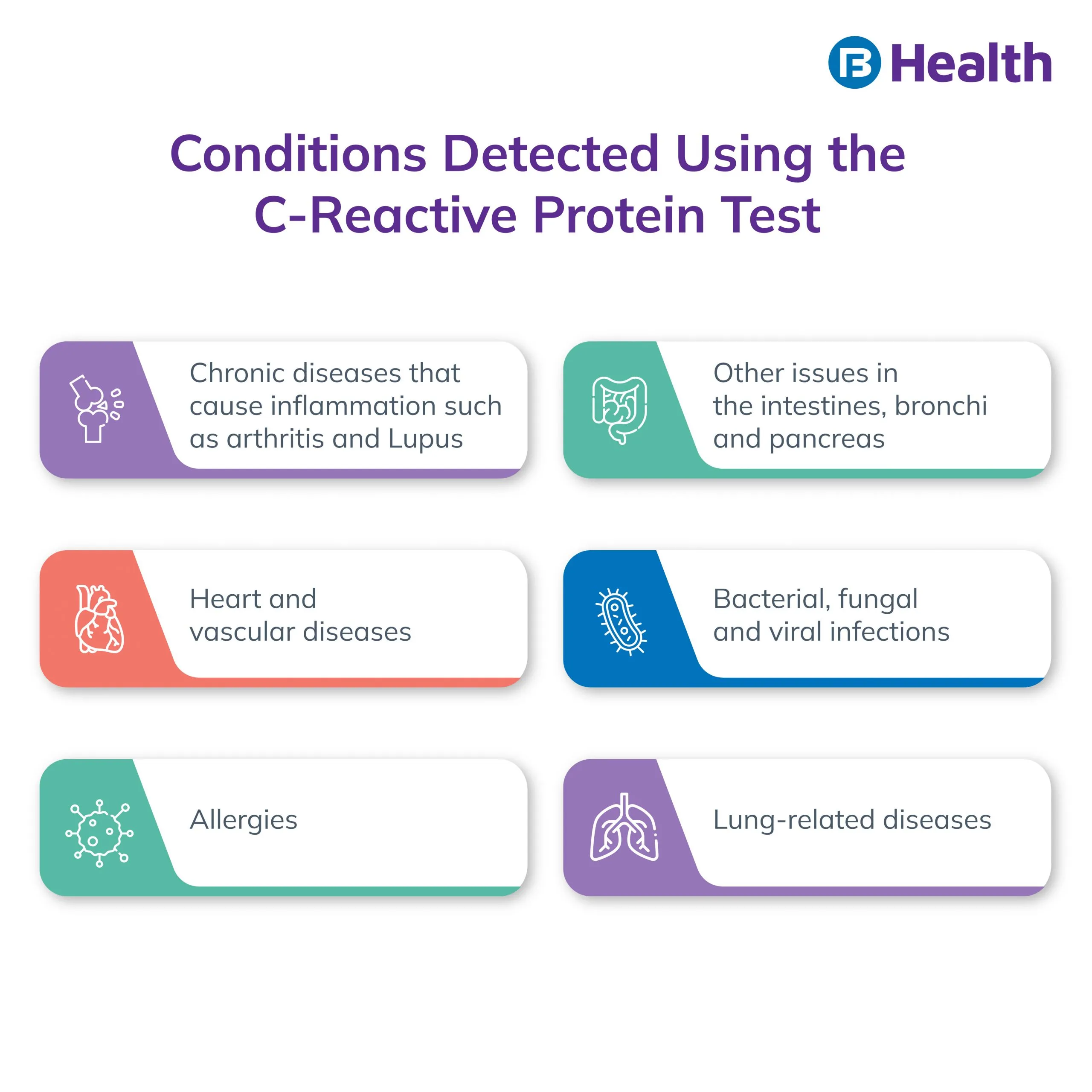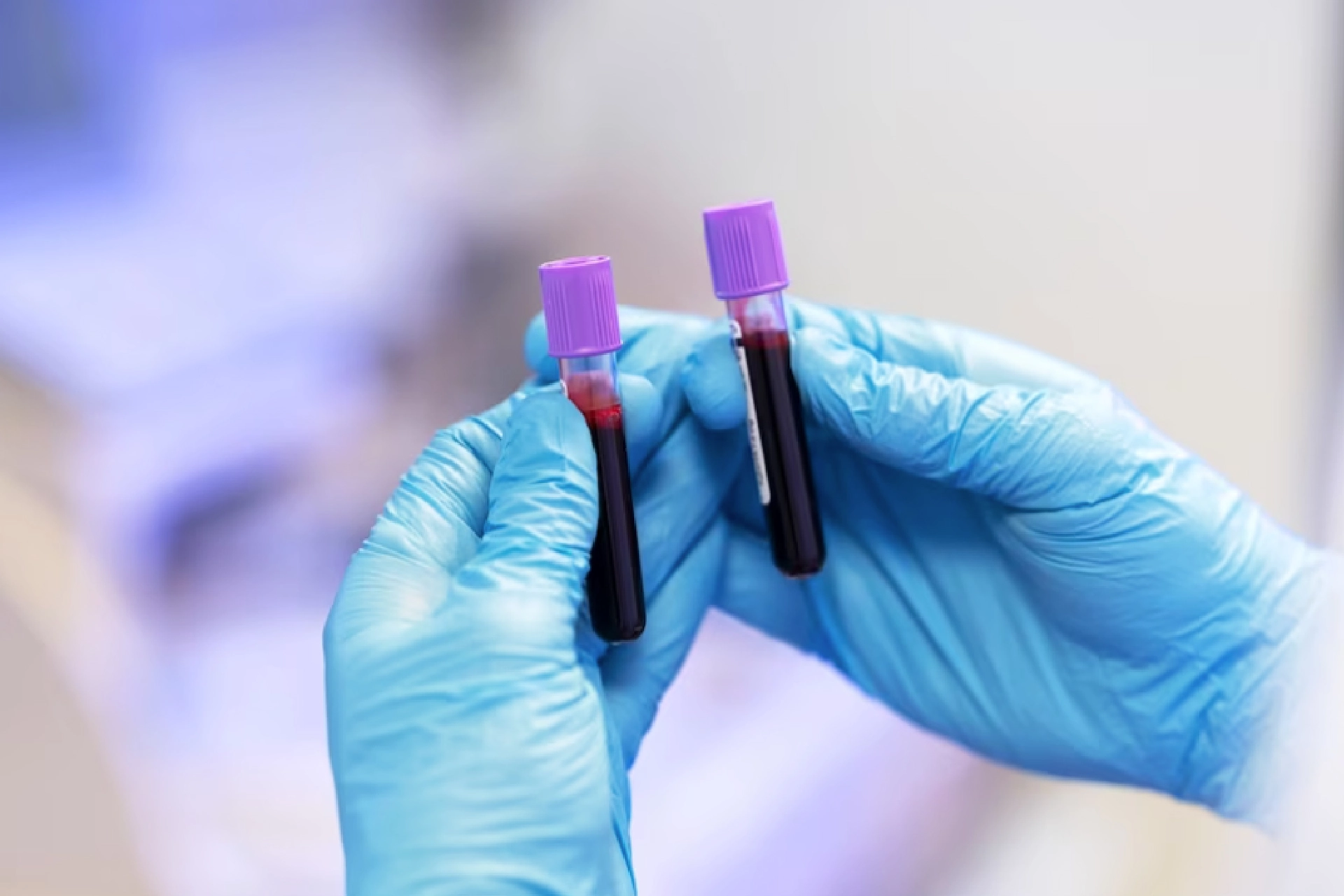Health Tests | 5 min read
C-Reactive Protein Test: Procedure, Purpose and Results
Medically reviewed by
Table of Content
Key Takeaways
- C-reactive protein test is used to confirm inflammation in the body
- It indicates the occurrence and onset of autoimmune diseases like Lupus
- Timely detection of heart disease is also possible with a C-reactive protein test
According to a study by the Indian Council of Medical Research, about 79% of Indians showed abnormalities in one of the lipid types, namely LDL and HDL [1]. In most cases, doctors recommend the C-Reactive protein test as a follow-up to a lipid test once they detect an anomaly in your lipid scores. This lab test further confirms inflammation within the body.
Primarily, a C-reactive protein test is a supporting test used to reach the root cause of a health condition that has altered the body’s normal cholesterol range. Apart from lipid anomalies, several other health conditions, such as periodontitis or acute gum disease, can lead to inflammation, which can be confirmed through a C-reactive protein test [2].
CRP is made in the human body by the liver, so a lab test of your blood that indicates a C-reactive protein high score signals a bigger health anomaly linked to the liver and other organs. Moreover, inflammation and fever are the body’s way of responding to an infection or a disease. So, infection leads to inflammation, which leads to a C-reactive protein high score that indicates malfunctions within the body. Read on to know more.

When should you get a C-reactive protein test done?
A doctor may prescribe a C-reactive protein test for you to diagnose several symptoms and health conditions. Common symptoms like fever, chills, body aches or even twitches that may not be connected to any visible infection may actually indicate an underlying condition. To diagnose this better, you may be asked to conduct a C-reactive protein test.
Further, if you report symptoms that may be linked to heart disease, then you may be asked to conduct this test. Alternatively, if you begin to show symptoms of any infectious disease or inflammatory disease such as arthritis, you may have to undergo the C-reactive protein test to confirm the condition.
Why is a C-reactive protein test used to detect heart problems?
High LDL or bad cholesterol levels are harmful to the body as LDLs lead to plaque, which is capable of clogging the arteries. As the level of LDL rises in the blood, it leads to inflammation owing to the blockages it causes, leading to interrupted blood flow. While a lipid profile can confirm the presence of a high level of LDL in the blood, the C-reactive protein test can confirm inflammation, and its high score can indicate the risk of heart disease and its severity. So, a timely test is very important to detect the onset of heart disease and prevent it early on.
What is the C-reactive protein test normal range?
Intensive weight training, workouts, and regular long runs can increase the C-reactive protein levels in the body. So, unless there are symptoms to support other ailments, a physician will not prescribe this test. This protein is measured in milligrams per liter, and a normal human adult will have less than ten mg/L of C-reactive protein in their bloodstream. Anything that is greater than this is considered to be beyond the C-reactive protein test normal range.

What are the other diseases that the C-reactive protein test can confirm?
Apart from the risk of heart diseases, doctors study the level of this protein in the blood alongside other symptoms to confirm diseases like:
- Cancer
- Rheumatoid arthritis
- Inflammatory bowel disease
- Lupus
- Tuberculosis
Even though the protein test is a good test to check if you are suffering from inflammatory or infectious diseases, the protein may be recorded as beyond the normal range during pregnancy.
If your results showcase a C-reactive protein high score, you can work towards reducing it by making lifestyle changes. While a doctor will try to treat you for the root cause and give you medications to reduce inflammation, a few things you can do to stay healthy are:
- Eat a balanced diet
- Include a lot of fiber in your meal
- Cut down on smoking and alcohol intake
- Increase your Vitamin C intake
With this information at hand, you can get a C-reactive protein test done when needed. It may be better to consult an expert before booking a lab test online, and there may be other blood test types required to get to the bottom of your health problems. Whether you want to speak to a heart specialist or book a lab test, you can do it all on Bajaj Finserv Health.
This platform makes it easy for you to find top doctors near you and book video consultations or in-person appointments. To manage and treat chronic diseases or cardiac problems, availing of medical insurance may also be the right move for you. You can personalize your policy by choosing any of the Complete Health Solution plans on Bajaj Finserv Health. This allows you to take preventive measures like free lab tests and doctor consultations while getting a cover for your medical treatment when needed. Check it out now, and pledge to take better care of your health.
References
- https://www.ncbi.nlm.nih.gov/pmc/articles/PMC6994761/
- https://onlinelibrary.wiley.com/doi/10.1111/j.1600-0765.2004.00731.x
Disclaimer
Please note that this article is solely meant for informational purposes and Bajaj Finserv Health Limited (“BFHL”) does not shoulder any responsibility of the views/advice/information expressed/given by the writer/reviewer/originator. This article should not be considered as a substitute for any medical advice, diagnosis or treatment. Always consult with your trusted physician/qualified healthcare professional to evaluate your medical condition. The above article has been reviewed by a qualified doctor and BFHL is not responsible for any damages for any information or services provided by any third party.




